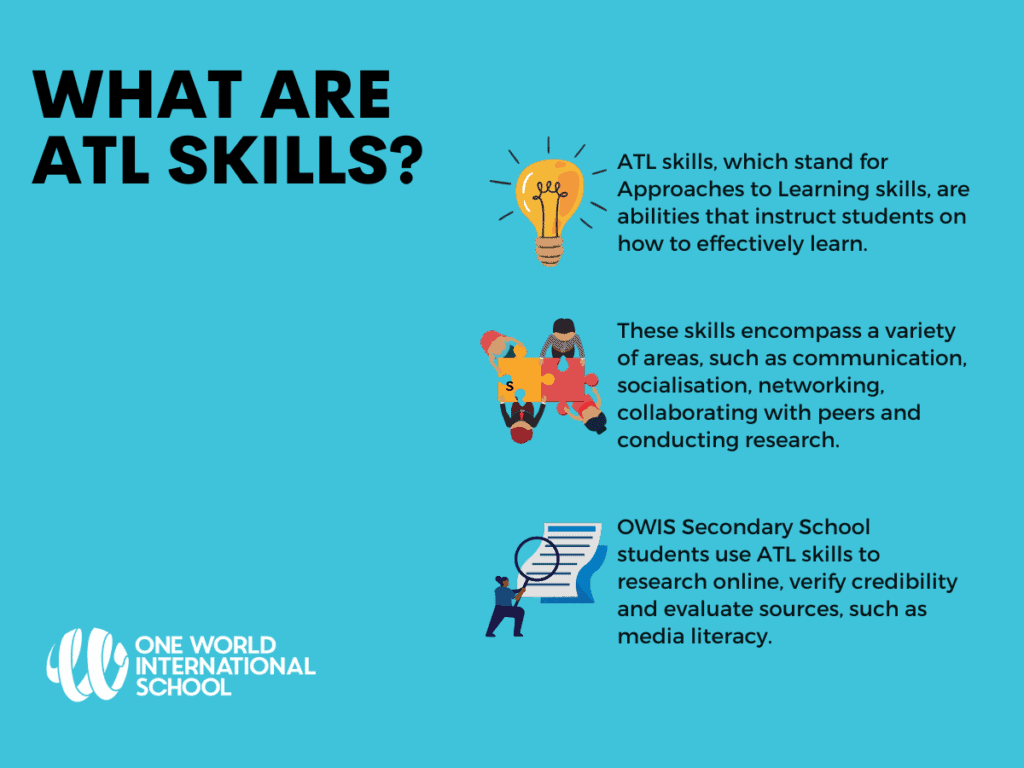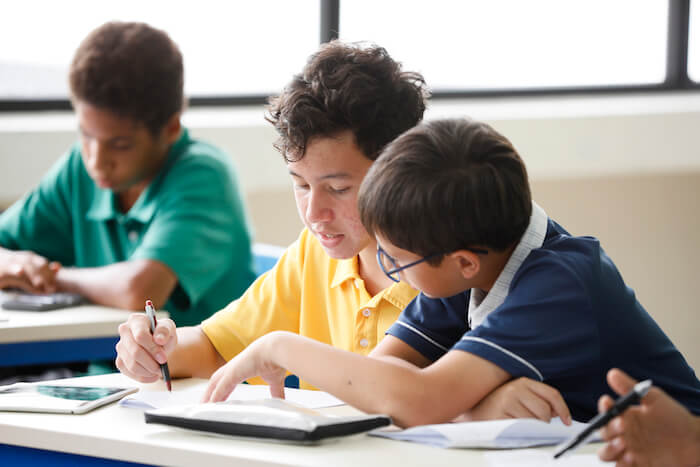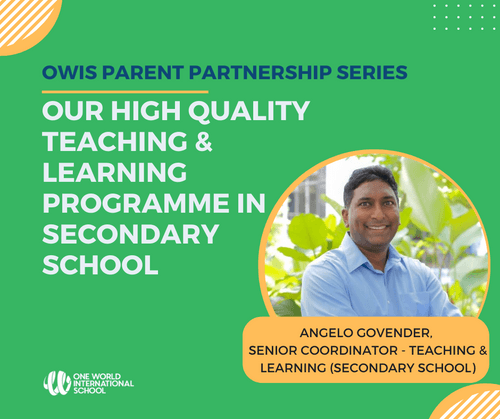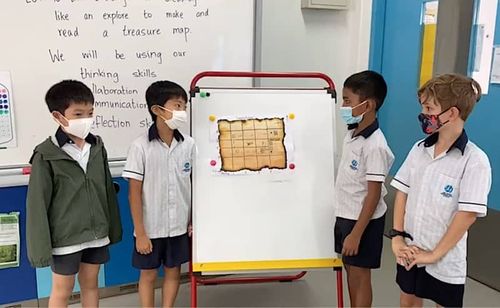Recently, Mr Angelo Govender, Senior Coordinator for Teaching and Learning for Secondary School, gave an insightful talk as a part of OWIS’ Parent Partnership Series. The subject was high-quality learning and teaching at OWIS.
Below is a summary of his talk.
About Multiple Intelligences and Varying Learner Profiles
Many years ago, schools catered to the top-performing learners only. Anyone who could memorise information and then repeat it for a test was likely to succeed in school.
Today, we understand there are multiple intelligences and different learner profiles. For example, students can be mathematical thinkers, visual learners, intrapersonal learners, kinesthetic learners and so on. These different learning styles mean that every child has a unique set of needs. The best schools meet children where they’re at and cater to those needs.
OWIS offers high-quality learning for students and recognises that students have different learner profiles. By catering to these different learner profiles, OWIS provides students with what they need to succeed in school.
IB Learner Profile

The IB Learner Profile is made up of a number of attributes. Children who attend schools that teach the IB curriculum are encouraged to be knowledgeable and balanced. They read and study but also engage in a variety of activities inside and outside school.
IB students are risk-takers who step out of their comfort zone. They stand in front, even if they are quiet and prefer to be seated at the back. They are leaders who showcase their abilities. They are caring and principled, aware of the differences between right and wrong, and they know when to do the right thing.
IB students are inquirers who seek knowledge and understanding. They question the world around them in a manner that allows them to grow and develop as human beings. They are reflective, as well as good communicators. They talk about their feelings, even if something is troubling them. IB students tell people about their troubles – people who can help them. They are open-minded and mindful of cultures, religions, races and denominations.
Last but not least, IB students are thinkers. They are encouraged to think for themselves. They are rarely asked to read from a textbook and memorise things. Instead, they are asked to analyse and critically process what they are doing in class, come up with their own logical questions, explain their findings and then reflect on them.
IB Learner Profiles Tie In With ATL Skills

Approaches to Learning skills (we call them ATL skills) are skills that teach students the best way to learn. Some examples of ATL skills include communication, social skills, networking, collaborating with peers and research skills.
In Secondary School at OWIS, students use ATL skills to look up information online, identify whether it’s legitimate, and then conduct their research. Media literacy is a similar example of an ATL skill, which includes evaluating different sources and determining which sources are legitimate.
Self-management, organisational skills and reflection are all ATL skills. Students must be able to reflect on their actions, what went right, what they could have done better, and how they plan to improve moving forward.
Most of all, they must be thinkers and must be able to use their creative thinking skills to think around problems and solve issues for themselves.
Assessments at OWIS

There are many types of assessments in Secondary School at OWIS. The one most of you would know about is assessments in class. Students also perform self-assessments and be assessed by peer partners. In addition, formative assessments help teachers evaluate the progress of the class and the teacher’s work with the class.
The assessments serve a very specific purpose. The faculty at OWIS aims to create a learning environment where each student is inspired and challenged. In other words, teachers want to know the students well enough so they can target a learning programme specifically for their students. Faculty also wish to inspire the students and challenge them to be better every day.
Every Student can be Inspired to Reach Their Potential
It’s the job of every teacher at OWIS to ensure that their student’s needs are met.
Teachers at OWIS can inspire students and push them to the next level. OWIS is a place where there is a partnership between teachers and learners, and reflection is a planned and purposeful activity to encourage students to learn how to learn.
OWIS also provides a cohesive and progressive forward-looking curriculum. As each year builds on the next, students at OWIS become more prepared for their years in university and adulthood.














